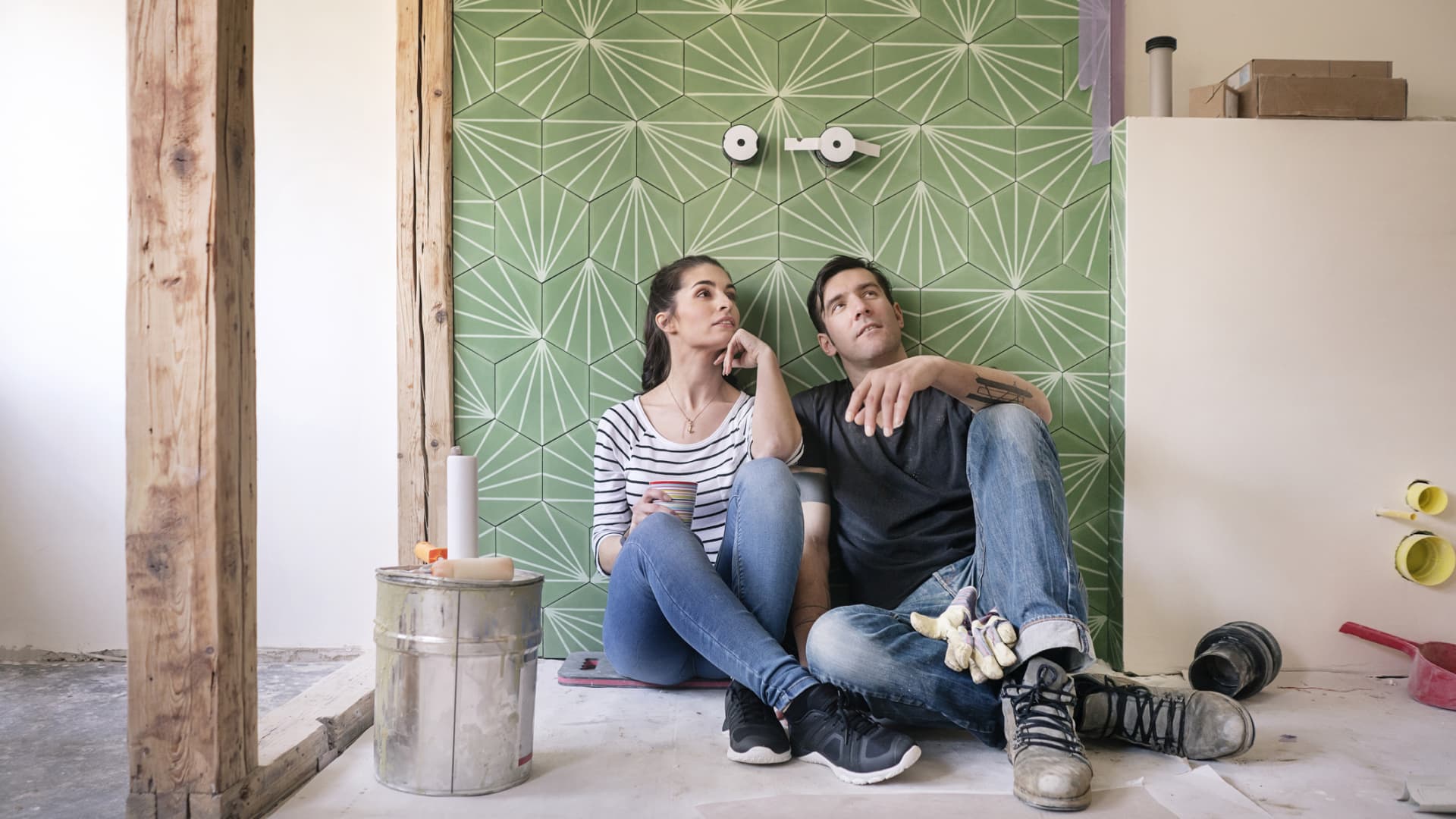Most homeowners are planning to remodel at some point down the road, but not everyone will get their money’s worth in improved home value.
Of all home improvement projects, the most popular are sparkling bathroom overhauls, according to newly released data from the Contractor Growth Network, followed by big-ticket kitchen and basement renovations.
In some cases, homeowners may get that money back when it’s time to sell, but, more often, these home renovations rarely deliver a great return.
More from Personal Finance:
Credit card debt nears $1 trillion
How to get started with investing, budgeting
How much emergency savings you really need
Overall, homeowners are getting just a 60% return on their renovation investments, according to a separate Cost vs. Value report from Zonda Media, a housing market research and analytics firm.
And the projects offering the greatest returns in resale value are not new kitchens and baths but rather projects related to a home’s curb appeal.
“You have to throw away everything you see on HGTV,” Todd Tomalak, Zonda’s principal of building products research, recently told CNBC.
Homeowners can expect a 100% return on investment on only a handful of renovations or additions, such as converting a heating, ventilation and air conditioning system to electric; replacing garage doors; installing a stone veneer; or upgrading to a steel front door.
A minor kitchen remodeling — such as painting and updating the backsplash — did provide high returns, but major kitchen and bathroom renovations did not, the Zonda survey found.
With high home prices and a tight supply of units for sale, more people are choosing to fix up their current home rather than look for something new, according to Tomalak.
Even though both construction and financing costs are up, this decade could be “the golden age of remodeling,” Tomalak said.
Still, cost is a “critical issue,” he added.
Further, financing renovations or improvements will only get more expensive as long as the Federal Reserve keeps interest rates high to curb inflation.
Do the math before starting a home project
About 95% of homeowners said they plan to take on a major home improvement project in the next five years, according to a recent report by Real Estate Witch. However, only 50% said they can afford it at the moment.
They’ll also likely spend more than they initially expect. The average homeowner shelled out $3,890 on renovations and remodeling in the past year alone, the report found.
To budget wisely, talk to a realtor in your area about specific renovations that could increase the value of your home and which ones to skip, advised Sophia Bera Daigle, CEO and founder of Gen Y Planning, an Austin, Texas-based financial planning firm for millennials.
Always get competitive bids on any project and add 10% to that estimate as a “buffer,” she said, since extra expenses “will likely come up.”
If you are going to finance a project, look into obtaining a home equity loan or home equity line of credit and factor in the interest rate and potential monthly payment. “Make sure you can work these monthly payments into your budget before you begin,” Daigle said.
It may make more sense to hold off on a big renovation so that you can save money, pay down debt and see if interest rates go down, added Daigle, a certified financial planner and also a member of CNBC’s Advisor Council.
Finally, consider how long you will stay in your current home and how a renovation will impact your life, Tomalak said. “If people are moving less often, this shifts the question of remodeling from an investment to the quality of living.”
